Power saving modes in Windows
TipsMake.com - Windows 7 offers many power saving options when users do not use a PC. Options include Sleep, Hibernate and Hybrid Sleep. This article will differentiate between the options and how to set up and use them effectively.
Sleep mode
Sleep mode is a power saving state similar to pausing a DVD movie. All operations on the computer are stopped. All open documents and applications are pushed into RAM. Users can re-operate the machine quickly, within seconds. Sleep mode is basically the same as Standby mode.
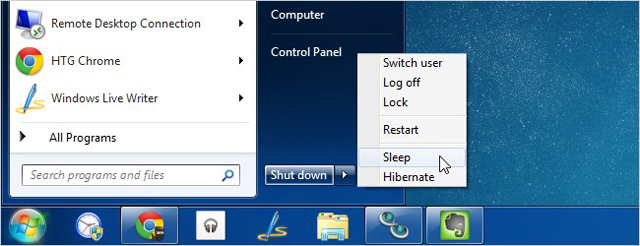
Effective Sleep mode for users who want to pause working for a short time. Computers do not consume too much energy when in this mode.
Hibernate mode
In Hibernate mode, open documents and running applications are saved to the hard drive and the computer shuts down. This means that the computer will not consume power. When the power is turned on again, the machine will continue the tasks that the user left before.
Use this mode when you don't need to use your laptop for a long time without closing the documents.
Hybrid Sleep
Hybrid Sleep is a combination of Sleep and Hibernate for desktops. Open documents and applications are pushed into both RAM and hard drives, then transfer the computer to a low-power consumption state, allowing users to " wake up " the computer quickly and continue the work. Hybrid Sleep mode is enabled by default on desktop and off on laptop. After activation, Sleep mode automatically switches to Hybrid Sleep mode.
Hybrid Sleep mode is useful for desktops in case of power failure. When power is restored, Windows can restore work from the hard drive, if the RAM memory is not accessible.
Location options
The Sleep and Hibernate options are accessed using the arrow next to the Shut down button on the Start menu .
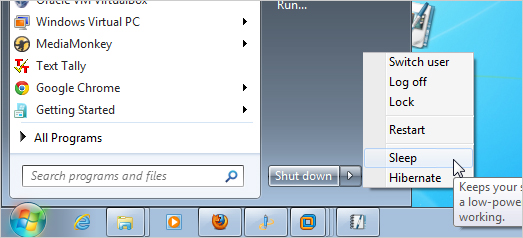
If you don't see the Sleep or Hibernate option, it may be due to the following reasons:
- The graphics card does not support Sleep mode. Please update the driver for the graphics card.
- No administrative access on the computer. Please tell the administrator to change options.
- Power saving modes on Windows turn on or turn off in BIOS (basic input / output system). To turn on these modes, restart the computer then go into the BIOS setup program.
- If you don't see the Hibernate option, the Hybrid Sleep option may already be enabled.
Wake up the computer
Most computers can be awakened by pressing the power button. However, depending on the different machines, there are different ways of awakening. Users can press a key on the keyboard, click or lift the laptop cover.
Activate and turn off the Hybrid Sleep option
To activate or turn off the Hybrid Sleep option, go to Control Panel on the Start menu .

Click Power Options in the Control Panel window.
Note : If you do not see Power Options, select Large icons or Small icons from the View by section in the top right corner of the Control Panel window. In the Category view, users can also click System and Security and then click the Power Options section .
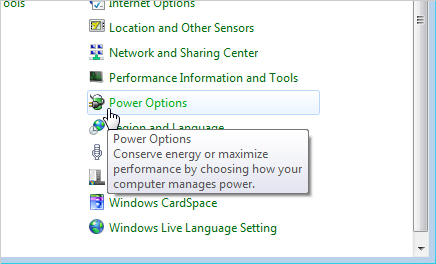
On the Select a power plan screen , click Change plan settings next to the currently selected power plan .
Note: Users can change the Hybrid Sleep option for one or both power plans . The step is the same for both.
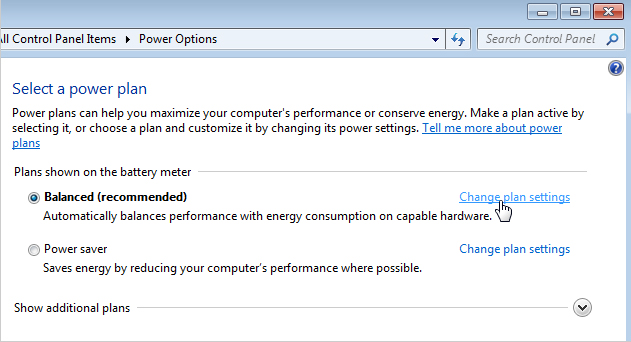
On the Change settings for the plan screen , click the Change advanced power settings link .
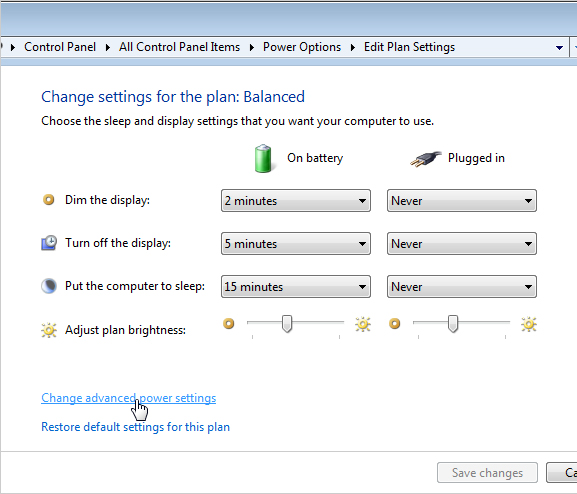
In the Power Options dialog box, click the Change settings link that is currently unavailable .
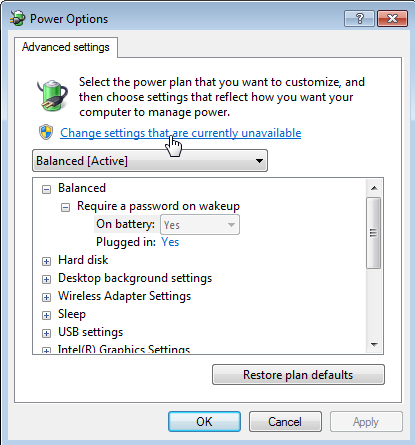
Click the plus sign next to Sleep to open the selection, if they have not been opened before. Click Allow Hybrid sleep plus sign. Select Off from one or both drop down lists under Allow hybrid sleep .
Note : Users can also double click on a heading to open options.
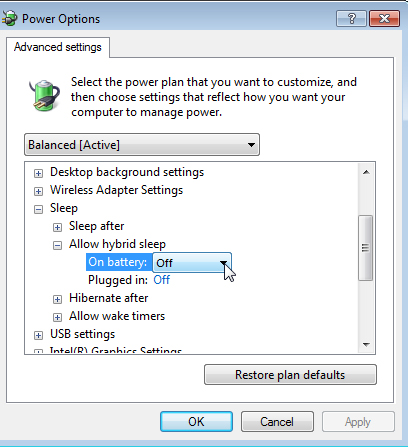
By default, Windows requires a password to access the computer when the user wakes it from the power saving state. Use the Power Options dialog to turn off the password. The first item in the list box is the name of the selected power plan in the drop-down list above the list box. Click the plus sign to expand the heading and select Off from one or both lists to drop down under the heading.
Click OK to save the changes and then press the X button in the upper right corner of the Control Panel window to close it.
Prevent the computer from automatically switching to Sleep or Hibernate mode
If a user is using a laptop running on battery power, be careful when turning off Sleep or Hibernate. If the battery runs out of work, the user will lose the document. You can also change the time before the computer goes into Sleep or Hibernate mode. Here is how to do it.
Go to Power Options in Control Panel , click on the Change plan settings link next to the currently selected power plan on the screen Select a power plan . On the Change settings for the plan screen , click the Change advanced power settings link .
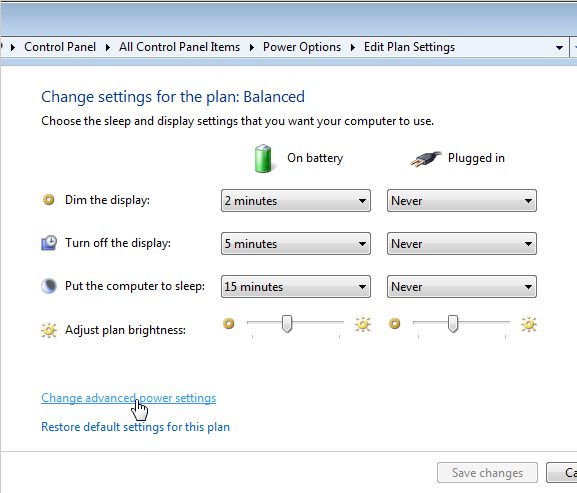
Double-click the Sleep heading and then double-click Sleep after . If you're using a laptop, press On battery or Plugged in to activate the edit box. Press the down arrow until Never appears. Do the same for the Hibernate heading after .
Note: For desktop computers, click Setting and press the down arrow until Never is selected.
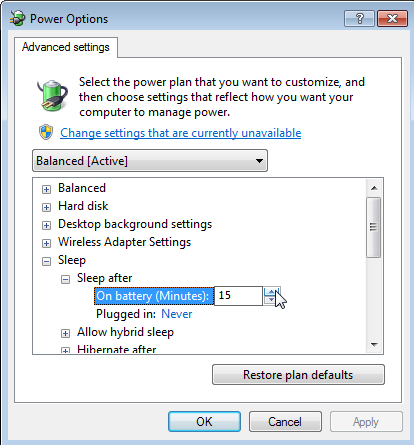
If you want to change the display time, double-click the Display heading and then double-click Turn off display after and change the desired On battery and Plugged in values.
Click OK to save the changes and close the Control Panel window.
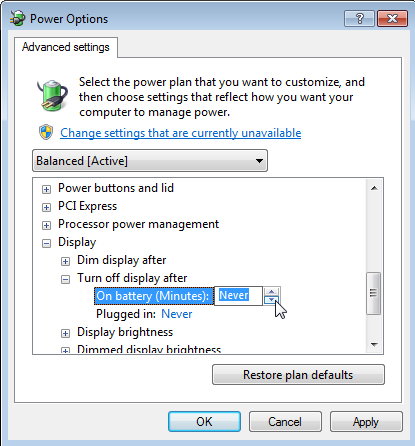
Now use the power saving mode wisely. If you are using a laptop, the best option is Hibernate because it saves power better than Sleep and Hybrid Sleep.